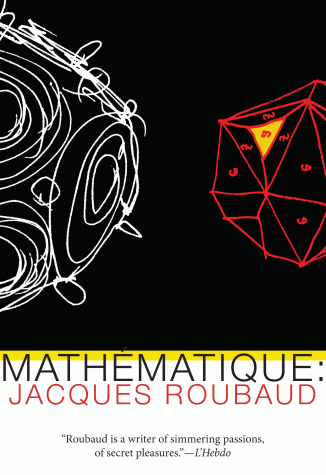Found Out: Jeff Griffin’s “LOST AND”
 Lost And
Lost And
by Jeff Griffin
University of Iowa Press, October 2013
174 pages, Buy from Amazon
I’ve been a big fan of Jeff Griffin’s work since he added me on facebook, years ago when I lived in DeKalb, IL and still had an account. I published an excerpt of Luxury Arcana, a collaborative work that Griffin produced with his compatriots Jerimee Bloemeke and Henry Fitch, in an early issue of LIES/ISLE. I became a dedicated fan of Human 500, Griffin & Bloemeke & Finch’s press, purchasing everything they put out.
One of my favorite books that Human 500 put out was There’s Never Been a Day That Didn’t Require Knives Like These (which you can hear Jeff talk about here), which is ostensibly an early version of the beautiful book LOST AND. I read it hung over after I had missed the train leaving Chicago taking me back closer to the shithole of DeKalb, IL which I called home at the time. In the state of being hung over the book carried a heavy affect that resounded through my aching bloodstream. I was astounded by the, perhaps let’s say, purity, or maybe even authenticity (though as a friend once said, “Nobody cares about authenticity other than Lorde”) that carried the tone of the assemblage. Thick for a chapbook, but totally comprehensive.
August 12th, 2014 / 9:50 am
HTMLGIANT Updated Review Guidelines
FOR PUBLISHERS/PRESSES/AUTHORS:
Email info about upcoming titles to janice@htmlgiant.com. Just the basics are fine ie. Title, Author, Release Date, Publisher, and URL to the book page online.
Only if someone is interested in reviewing a title, will I write back with a request for a review copy and you can send a review copy directly to the potential reviewer. This helps preserve sanity, space, and dollars.
FOR REVIEWERS:
Most of our reviews are submissions-based. Send any formal review submissions to janice@htmlgiant.com and any 25 points or anonymous review submissions to brooks@htmlgiant.com.
If you’re interested in reviewing for htmlgiant and would like to stay updated on possible review copies or are open to assignments,etc, send an email to janice@htmlgiant.com.
September 6th, 2013 / 5:11 pm
Bourbakists for memory, unite! Jacques Roubaud’s MATHEMATICS: (a novel)

Mathematics: (a novel)
by Jacques Roubaud
Dalkey Archive, 2012
312 Pages, $14.95
Buy from Dalkey Archive or Amazon
Jacques Roubaud, a premiere intellectual force throughout the history, to some extent, of French letters, as they say, is primarily known to American readers as a member of the OuLiPo and a poet. Roubaud’s reach, however, spans far beyond these simple categorical realms, throughout his massive ouevre of work, much of which has actually be translated into English.
Mathematics:, while recalling ideas, perhaps, that come up in specific OuLiPian exercises, is not inherently an OuLiPian work, nor is it a work of poetry. The cover of the book, in Dalkey’s translation, presents the work as “a novel,” and to an extent, within the heterodoxical forms that a novel can take, it is indeed a novel, but in the bookstore-culture of American publishing, it would find a place more comfortable within that loose genre of the memoir, the autobiography, the academic term of ‘creative non-fiction.’
The book at hand is the third “branch,” as Roubaud himself calls them, of a larger project dealing with the issue of memory and also, really, Roubaud’s life. And Roubaud has had a full intellectual life, in his work and his academic career, his interactions with the French literati, his presence in the OuLiPo, his poetry and, as it turns out, his career in mathematics.
Copy on the back cover of the book presents the idea that Roubaud is one of the few writers who has successfully bridged the gap between left brain and right brain thinking, hyperbole to an extent because I would insist that there is not such a clear divide in the generation of texts, but there’s a literal application in Roubaud’s mathematics career, and how it’s affected his interactions with the OuLiPo. But, regardless, despite exploring the branch of his own life that is in tangent with his career in mathematics, this insistence is no more than a structural system for Roubaud to explore memory within this specific realm of his own personal history.
There’s nothing too exciting about the literal events that occur within this branch of Roubaud’s life if you’re not connected to a historical exploration of the development of mathematics, specifically in France, from the early 1950s to the mid-1960s. It is interesting to read about, but there’s nothing specific to launch onto–so really, the question is, what’s the draw to read 300 pages of Roubaud’s life as it connects with mathematics?
The answer is simple, and beyond any sort of right brain articulation–Roubaud writes with a pleasantry that moves swiftly, a story-teller of diversions, splitting his own history into the rhizome of existence, a refusal of a straight narrative, an abundance of (as Roubaud himself points out) non-essential details, simply the creation of a narrative space.
There is no explicitly beautiful language present, as it seems that Roubaud saves that for his more highly emotional works (the incredible beauty that’s present in some thing black, Roubaud’s book of poetry written after the death of his wife Alix Cleo Roubaud, is nowhere to be found here). Instead we move through the maze of memory, constructed within a labyrinthine Proustian totality. Roubaud addresses the reader throughout the work, explaining the project, offering his insistence on the work both as exercise and project, aiming towards, perhaps, an unspoken totality, but this is not the totality that Mallarmé was after with his notes toward le livre, rather this is just a re-articulation of a full life in the form of the book.
Roubaud himself being an interestingly detached character, the scenes that occur are both instantly understandable and curiously casual–in fact, Roubaud’s decision to arbitrarily move from poetry and language into mathematics is an understandable one: there’s this thought, perhaps, a thought that I share at least, that in some way mathematics offers an answer to all the questions we as writers have; mathematics offers a totality to these great ideas of life. None of us could say how, and even if we were to attain the level of higher mathematics required to understand the really heavy and earth-shattering proofs that have arose within mathematics throughout its continued development, the lever of pure abstraction wouldn’t offer any solace. But it’s a quantifiable goal, an idea that while maybe we won’t understand the answer, we’ll at least have it.
And through this there is hardly nothing present outside of Roubaud’s interactions with mathematics–there are tangents that arise, tangents of humanity, but only when they’re linked to the mathematical narrative, through people and places met and involved through classes, other professors, drinking soda in the army, reading treatises on algebra in the desert during the war, watching a woman always wait for the train at the same time; all of these things don’t add up to a point, they simple contribute to a life, life as a whole, as something imperfect and incomplete, as something that can be interesting exclusively in the way it’s told to someone else.
November 1st, 2012 / 8:55 pm
William Giraldi’s Review of Alix Ohlin: A Failure in Four Parts
Background
Last weekend, William Giraldi’s New York Times review of two new books by Alix Ohlin blew up the literary twittersphere (which is to say that literally tens of people were talking about it). The discussion about Giraldi’s incredibly mean-spirited critique coincided with a debate about niceness vs. honesty in reviewing, started by an intriguing (though, in my opinion, somewhat alarmist) article at Slate. But Giraldi’s piece is irrelevant to the nice vs. honest debate and completely worthless to either side of the argument, since his review is not only dickish, but also dishonest.
August 21st, 2012 / 1:54 pm
Review This

I don’t write reviews. I don’t write reviews because I don’t like writing reviews. Maybe if I got paid to write reviews I would write them and eventually enjoy myself. But in general I’d rather write fan mail or get drunk with my friends and talk about the books I love or the ones that disappointed me. The process of writing a review feels a little like having sex with someone you barely know under the glare of a bare bulb on a hot afternoon in an apartment with no AC after having scarfed a bunch of Mexican food. You know, gross! Embarrassing. READ MORE >
July 15th, 2010 / 7:17 pm
The Review Review

I don’t know if we’ve already mentioned this, but I’ll go ahead anyhow. The Review Review is a newish site that reviews literary journals. Pretty straightforward right? Sure. I like that they link to online essays by various editors of literary journals; sort of emphasizes the people behind these projects. I also like that they have organized their reviews into categories, such as “In The Grammar Gutter” and “Overwhelmingly Positive.” This seems funny to me; I mean this in a good way.
Becky Tuch started the project this past spring. Here’s her ‘manifesto’ or ‘editor’s note’ or whatever:
Wanting to get published in lit mags had started to feel like doing community service so that it would look good on your college application. That is to say, lit mags did not represent pleasure, engagement or intellectual growth, but merely a stepping stone toward recognition from book editors and maybe agents.
At first, this discovery was comforting. I’m not alone, I thought. No one reads these things! But the more I considered the situation, the worse I began to feel. How could we expect lit mags to care about our work, when we didn’t care about theirs? Why would anyone make time or pay money for our stories if we were unwilling to take a lit mag on our morning commute or shell out the twenty bucks a year for a subscription?
I like the idea of someone suggesting that we ought to care about the work that literary magazine editors do, the ‘discourse’ that literary magazines create. I like this idea. I haven’t had a chance to look through the reviews, so I can’t speak to the quality of writing on this site, but I like the idea. It seems similar to the kind of stuff going on at Newpages.com and Five Star Literary Stories.
Anyhow, have a look. Report back to us; I’ve done enough work today.
(Thanks, Cliff)

